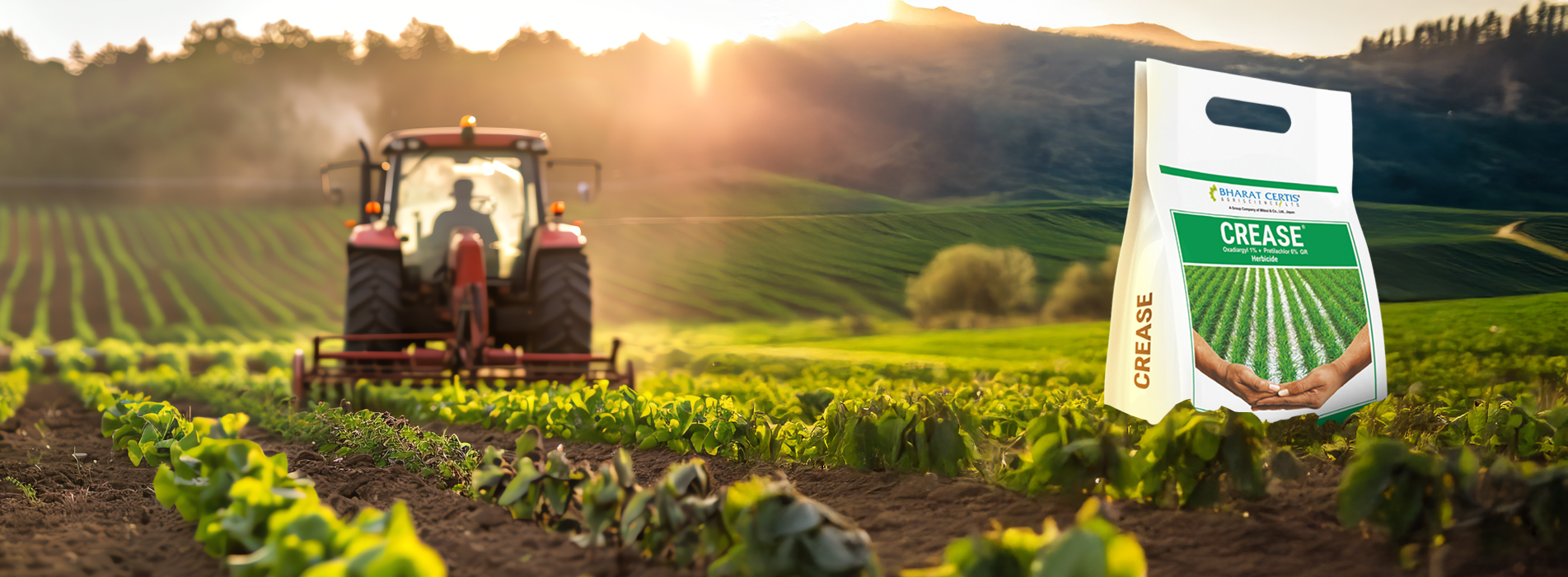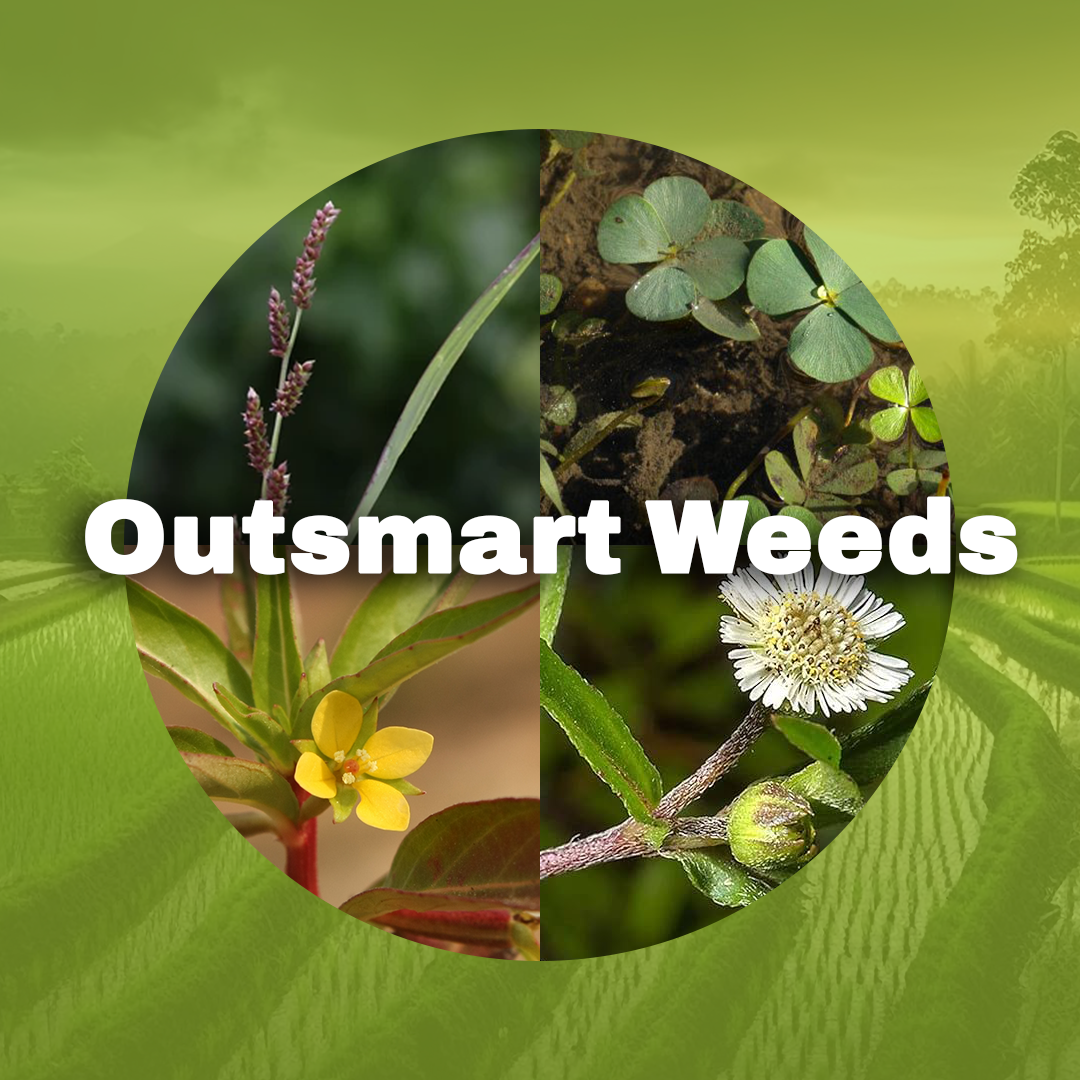
Outsmart Weeds, Optimize Your Paddy Yield: A Comprehensive Guide
29 th November 2024
Weeds are the silent saboteurs of paddy fields, silently stealing nutrients, water, and sunlight from your precious paddy field. This can lead to stunted growth, reduced grain quality, and ultimately, lower yields. To ensure a bountiful harvest, it's crucial to implement effective weed management strategies.
Understanding the Weed Menace
Weeds are unwanted plants that grow in your field. They can choke your rice plants, making it harder for them to grow and produce grains.
Life Stages of Weeds:
1. Seed Stage: Tiny weed seeds can lie dormant in the soil for years.
2. Germination: Under favorable conditions, the seeds sprout into seedlings.
3. Vegetative Growth: Seedlings grow into mature plants with roots, stems, and leaves.
4. Reproductive Stage: Mature weeds produce seeds, starting the cycle anew.How to Outsmart the Weeds

1. Pull Them Out: The simplest way is to pull the weeds out by hand, especially for small-scale farmers. However, for large fields, this can be labor-intensive and time-consuming.
2. Use Herbicides Wisely: Herbicides are chemical substances that kill weeds. They can be applied in different forms. However, it's crucial to use herbicides responsibly and follow label instructions to avoid harming beneficial insects and the environment.
3. Partner with a Pre-Emergent Hero: A pre-emergent herbicide like Crease from Bharat Certis AgriScience Ltd. can be a game-changer. It forms a protective layer in the top few centimeters of the soil, preventing weed seeds from germinating. This early intervention is crucial in preventing a weed infestation.
Additional Tips for Effective Weed Control
• Clean Farm Equipment: Clean your farming equipment before moving to a new field to prevent the spread of weed seeds.
• Crop Rotation: Rotate your crops to disrupt the weed cycle and reduce weed pressure.
• Maintain Proper Water Levels:: Adequate water management can help suppress weed growth.
• Timely Harvesting: Harvest your crop promptly to reduce weed seed production.
• Consult with Agricultural Experts: Seek advice from local agricultural experts to get tailored recommendations for your specific field conditions and weed problems.
Common Weeds in Paddy Fields and Control Strategies
• Broadleaf Weeds: These include Marsilea, Monochoria, Ludwigia parviflora, Eclipta, Alternanthera, Commelina, Ipomoea. They compete with rice plants for sunlight and nutrients.
• Sedges: Cyperus iria, Cyperus difformis, Scripus and fimbristylis
• Grassy Weeds: These include Echinochloa, Dactyloctenium, Leptochloa, Paspalum. They can quickly infest paddy fields and reduce yields.
Control Strategies:
• Hand Weeding: Effective for small-scale farmers, but labor-intensive.
• Mechanical Weed Control: Using tools like rotary weeders or cultivators to remove weeds.
• Mechanical Weed Control: Using tools like rotary weeders or cultivators to remove weeds.
• Herbicide Application: Applying appropriate herbicides at the right time can effectively control weeds.
• Integrated Weed Management (IWM): Combining multiple control methods, including cultural practices, biological control, and chemical control, for sustainable weed management.
By understanding the life cycle of weeds and implementing a combination of these strategies, you can effectively control weeds and ensure a healthy, productive paddy field. Remember, early detection and timely action are key to successful weed management.